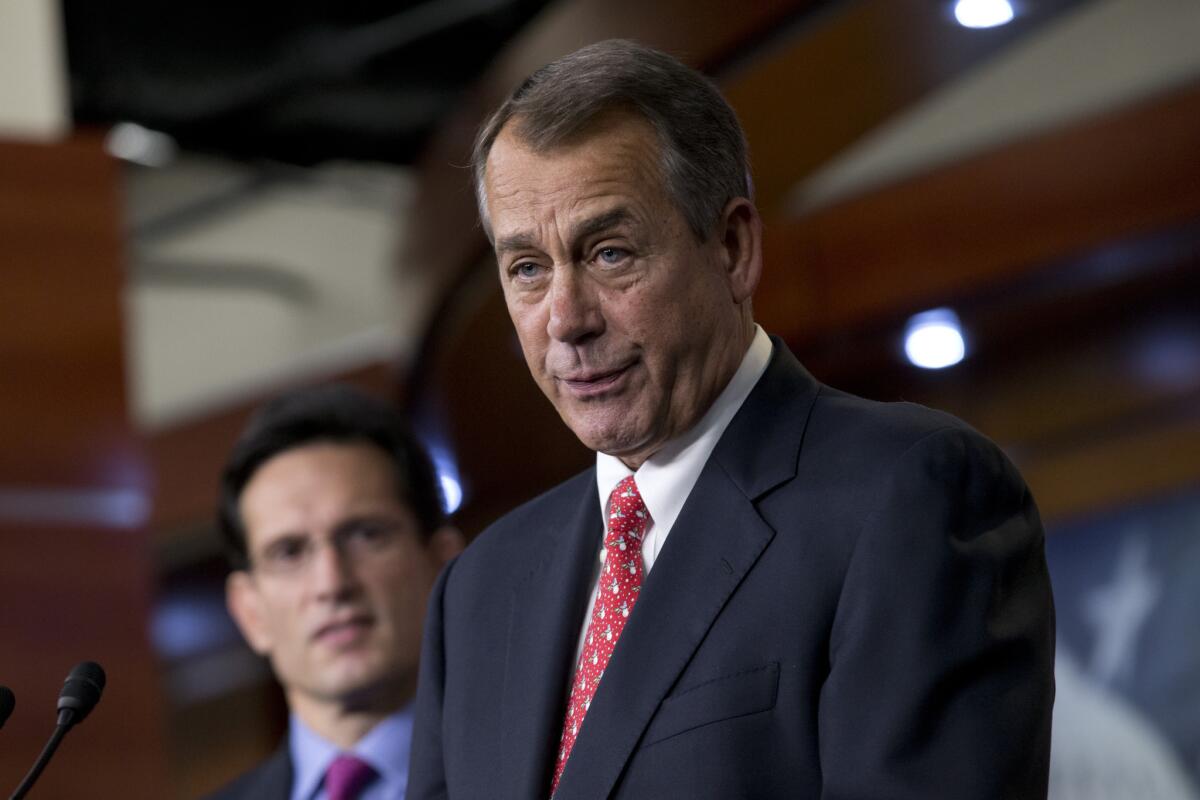Playing with fiscal fire

- Share via
Federal statisticians issued unexpectedly bad news Wednesday, saying the economy contracted in the last three months of 2012 — the first downturn since the recovery began in mid-2009. The sour numbers weren’t as bad as they seemed at first, yet they still sent a clear signal that the economy is too fragile to withstand a sudden shift to fiscal austerity. Unfortunately, Congress doesn’t seem to be getting the message.
The Commerce Department’s Bureau of Economic Analysis reported that U.S. gross domestic product shrank by 0.1% in the fourth quarter of 2012, after growing 3.1% in the third quarter. The two main factors in the contraction were sharp reductions in military spending — not unusual for that time of year — and business inventories. In fact, much of the growth in the third quarter stemmed from increases in those two areas. Over the course of the year, GDP grew 2.2%, or about half as fast as would have been expected in the typical recovery.
Considering the havoc caused by Superstorm Sandy and the uncertainty surrounding the so-called fiscal cliff, the fourth quarter could have been worse. And the economy may still sink further. As a result of a last-minute compromise on the fiscal cliff, temporary cuts in payroll taxes (for all wage earners) and income taxes (for the highest incomes) lapsed at the beginning of the year. And in March, more than $100 billion in across-the-board cuts to discretionary spending programs are scheduled to begin. This kind of double whammy could push the country back into recession.
Included in the 2011 deal to raise the debt limit, the across-the-board cuts were seen as a worst-case scenario that would help push Republicans and Democrats to reach an agreement on how to fix the federal government’s finances for the long term. From that perspective, discretionary spending isn’t the problem — entitlement programs are, especially those such as Medicare and Medicaid that provide healthcare benefits.
Sadly, both Republicans and Democrats seem ready to let the cuts go into effect as scheduled rather than trying again to bridge their differences over a long-term plan. That’s playing with fire. As problematic as large, sustained deficits are, the first priority for lawmakers should be stronger economic growth and more jobs. They won’t be able to solve the deficit problem as long as the economy remains sluggish. And it should be obvious that pushing the country back into recession would be a step in exactly the wrong direction.
What’s needed now is a clear, achievable plan to bring the debt and deficit under control for the long term. A crucial part of any such plan is promoting a more vigorous economy, possibly by simplifying the federal tax code. Another important piece is putting entitlements on a more sustainable path, reducing the drain on the Treasury. That means expanding on the 2010 healthcare law’s efforts to increase efficiency, quality and innovation in healthcare. But if Congress is determined to cut federal spending now at all costs, it may be chagrined to find how much it costs the economy.
More to Read
A cure for the common opinion
Get thought-provoking perspectives with our weekly newsletter.
You may occasionally receive promotional content from the Los Angeles Times.






